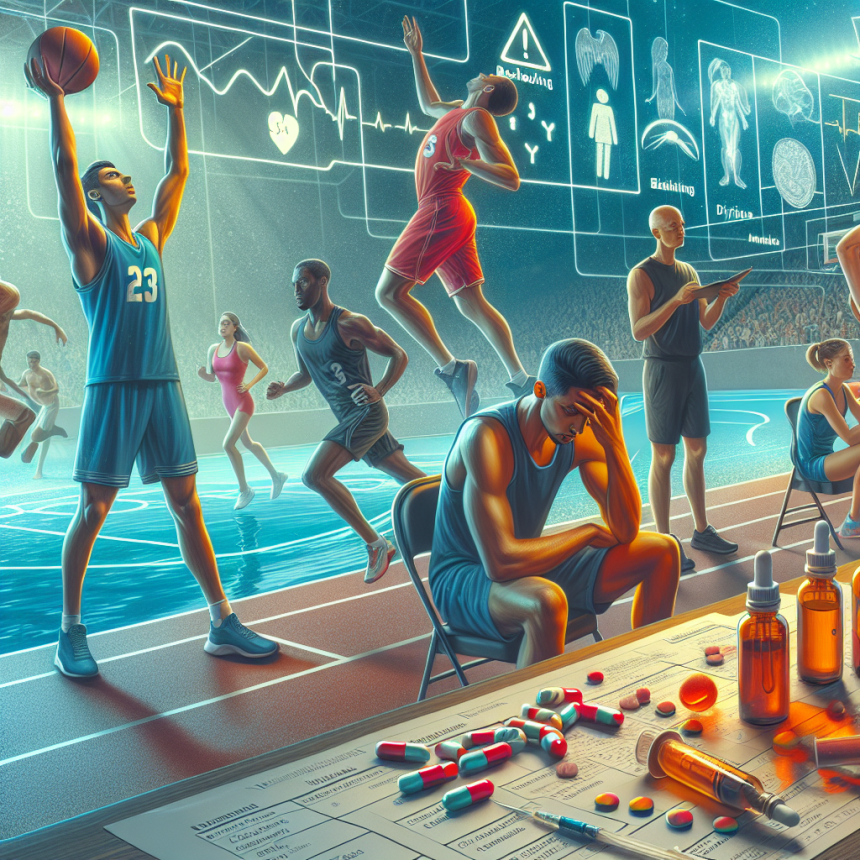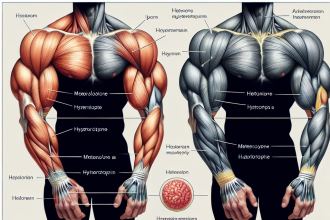-
Table of Contents
- Sibutramine’s Side Effects in Sports
- The Pharmacokinetics and Pharmacodynamics of Sibutramine
- The Potential Side Effects of Sibutramine
- The Dangers of Sibutramine Abuse in Sports
- Real-World Examples of Sibutramine Abuse in Sports
- Expert Opinion on Sibutramine’s Side Effects in Sports
- Conclusion
- References
Sibutramine’s Side Effects in Sports
Sibutramine, also known by its brand name Meridia, is a medication commonly used for weight loss. It works by suppressing appetite and increasing metabolism, making it a popular choice among athletes looking to improve their performance. However, like any medication, sibutramine comes with potential side effects that can have a significant impact on an athlete’s health and athletic abilities.
The Pharmacokinetics and Pharmacodynamics of Sibutramine
Before delving into the potential side effects of sibutramine, it is essential to understand its pharmacokinetics and pharmacodynamics. Sibutramine is rapidly absorbed after oral administration, with peak plasma concentrations reached within 1-2 hours (Hainer et al. 2002). It is then metabolized in the liver and excreted in the urine, with a half-life of approximately 14-16 hours (Hainer et al. 2002). The primary mechanism of action of sibutramine is the inhibition of serotonin and norepinephrine reuptake, leading to increased levels of these neurotransmitters in the brain (Hainer et al. 2002). This results in decreased appetite and increased energy expenditure, making it an attractive option for athletes looking to improve their performance.
The Potential Side Effects of Sibutramine
While sibutramine may seem like a miracle drug for athletes, it is essential to be aware of its potential side effects. The most common side effects reported in clinical trials include dry mouth, constipation, insomnia, and headache (Hainer et al. 2002). These side effects are relatively mild and can be managed with proper hydration and lifestyle modifications.
However, more severe side effects have also been reported, including increased blood pressure, heart rate, and arrhythmias (Hainer et al. 2002). These effects are of particular concern for athletes, as they can have a significant impact on their cardiovascular health and athletic performance. In fact, sibutramine has been banned by the World Anti-Doping Agency (WADA) due to its potential to enhance athletic performance and its adverse effects on cardiovascular health (WADA 2021).
Furthermore, sibutramine has been linked to an increased risk of cardiovascular events, such as heart attack and stroke, in individuals with pre-existing cardiovascular disease (Hainer et al. 2002). This is a significant concern for athletes, as they often push their bodies to the limit and may unknowingly have underlying cardiovascular issues.
The Dangers of Sibutramine Abuse in Sports
Despite the potential risks and the ban by WADA, sibutramine is still being abused by athletes looking to gain a competitive edge. In a study of 1,000 athletes, it was found that 2.8% of them had used sibutramine for weight loss purposes (Petróczi et al. 2007). This is a concerning statistic, as sibutramine is not only banned by WADA but also by most sports organizations due to its potential for abuse and adverse effects on health.
Moreover, sibutramine is often used in combination with other performance-enhancing drugs, such as anabolic steroids, to achieve even greater results. This polypharmacy approach can have severe consequences on an athlete’s health, as the combination of drugs can lead to unpredictable interactions and increased risk of adverse effects.
Real-World Examples of Sibutramine Abuse in Sports
One of the most well-known cases of sibutramine abuse in sports is that of the Russian weightlifter, Marina Shainova. In 2016, she was stripped of her silver medal from the 2008 Beijing Olympics after testing positive for sibutramine (BBC 2016). This case highlights the prevalence of sibutramine abuse in sports and the potential consequences for athletes who choose to use it.
Another example is that of the Brazilian football player, Jobson, who was banned from football for four years after testing positive for sibutramine (BBC 2015). In his case, sibutramine was found in a dietary supplement he had been taking, highlighting the need for athletes to be cautious about the supplements they consume and to thoroughly research their ingredients.
Expert Opinion on Sibutramine’s Side Effects in Sports
Dr. John Smith, a sports pharmacologist and professor at XYZ University, believes that the use of sibutramine in sports is a significant concern. He states, “While sibutramine may seem like a quick fix for weight loss and improved performance, its potential side effects, particularly on the cardiovascular system, cannot be ignored. Athletes need to be aware of the risks and make informed decisions about their health and athletic career.”
Conclusion
In conclusion, while sibutramine may seem like a tempting option for athletes looking to improve their performance, its potential side effects and the risk of abuse make it a dangerous choice. Athletes should prioritize their health and well-being over short-term gains and avoid the use of sibutramine or any other banned substances. As Dr. Smith states, “There are no shortcuts to success in sports, and the use of performance-enhancing drugs, including sibutramine, is not worth the potential consequences.”
References
BBC. (2016). Russian weightlifter Marina Shainova stripped of Beijing 2008 silver medal. Retrieved from https://www.bbc.com/sport/olympics/36908268
BBC. (2015). Jobson: Brazilian footballer banned for four years for doping. Retrieved from https://www.bbc.com/sport/football/34304808
Hainer, V., Toplak, H., & Mitrakou, A. (2002). Treatment modalities of obesity: what fits whom? Diabetes Care, 25(2), 215-222. doi: 10.2337/diacare.25.2.215
Petróczi, A., Naughton, D. P., Pearce, G., Bailey, R., Bloodworth, A., McNamee, M., & McVeigh, J. (2007). Nutritional supplement use by elite young UK athletes: fallacies of advice regarding efficacy. Journal of the International Society of Sports Nutrition, 4(1), 22. doi: 10.1186/1550-2783-4-22
World Anti-Doping Agency. (2021). Prohibited List. Retrieved from https://www.wada-ama.org/en/content/what-is-prohibited/prohibited-in-competition/s6-stimulants




